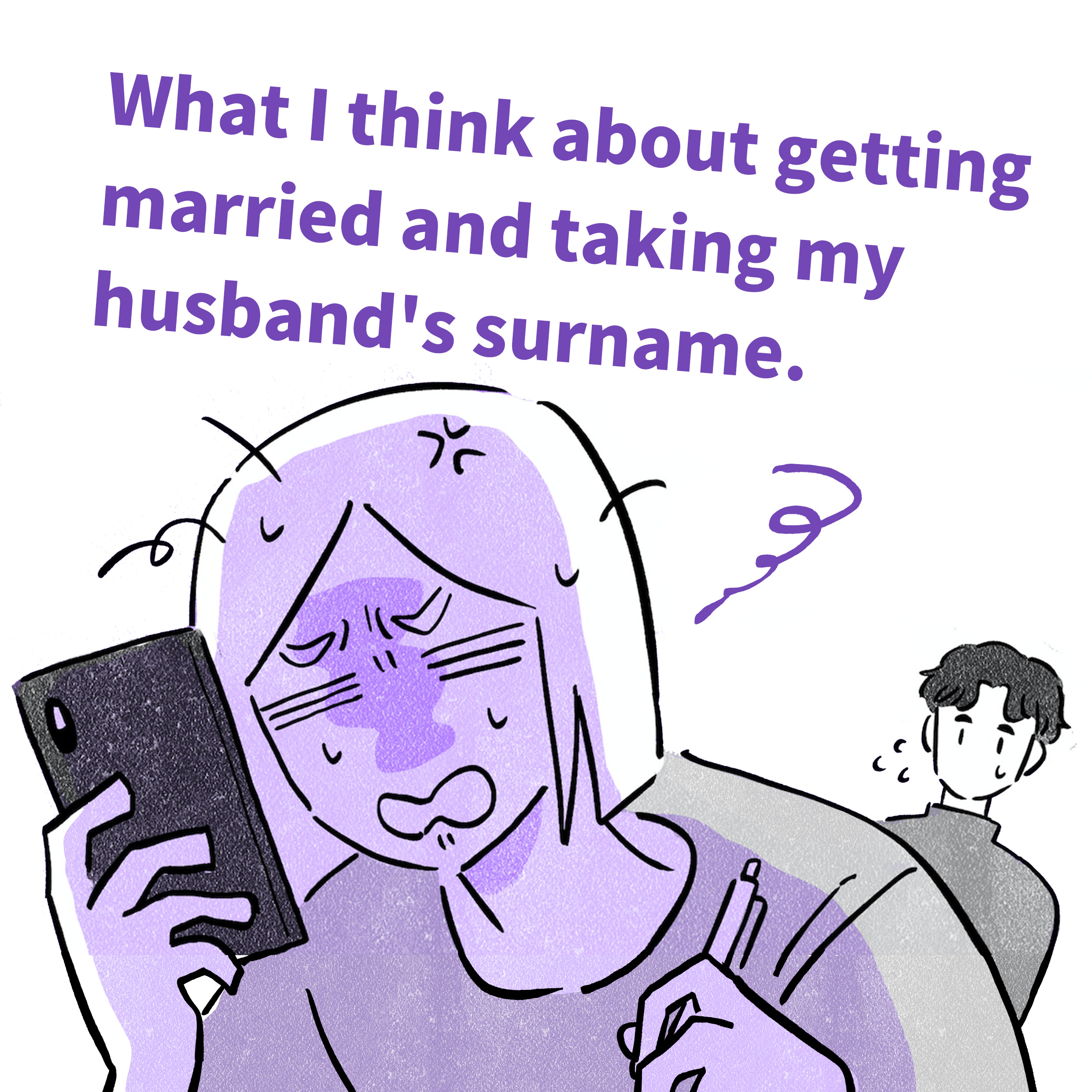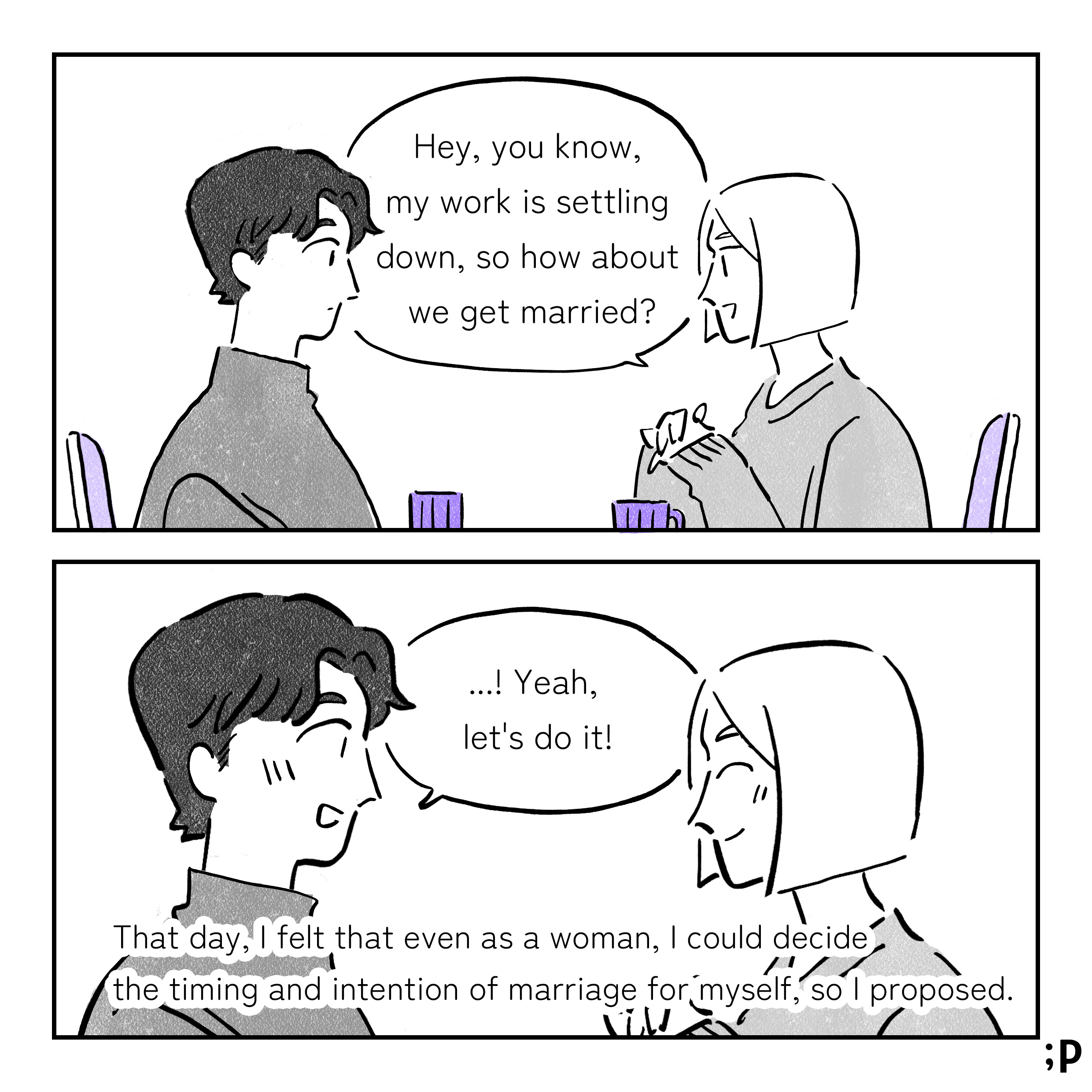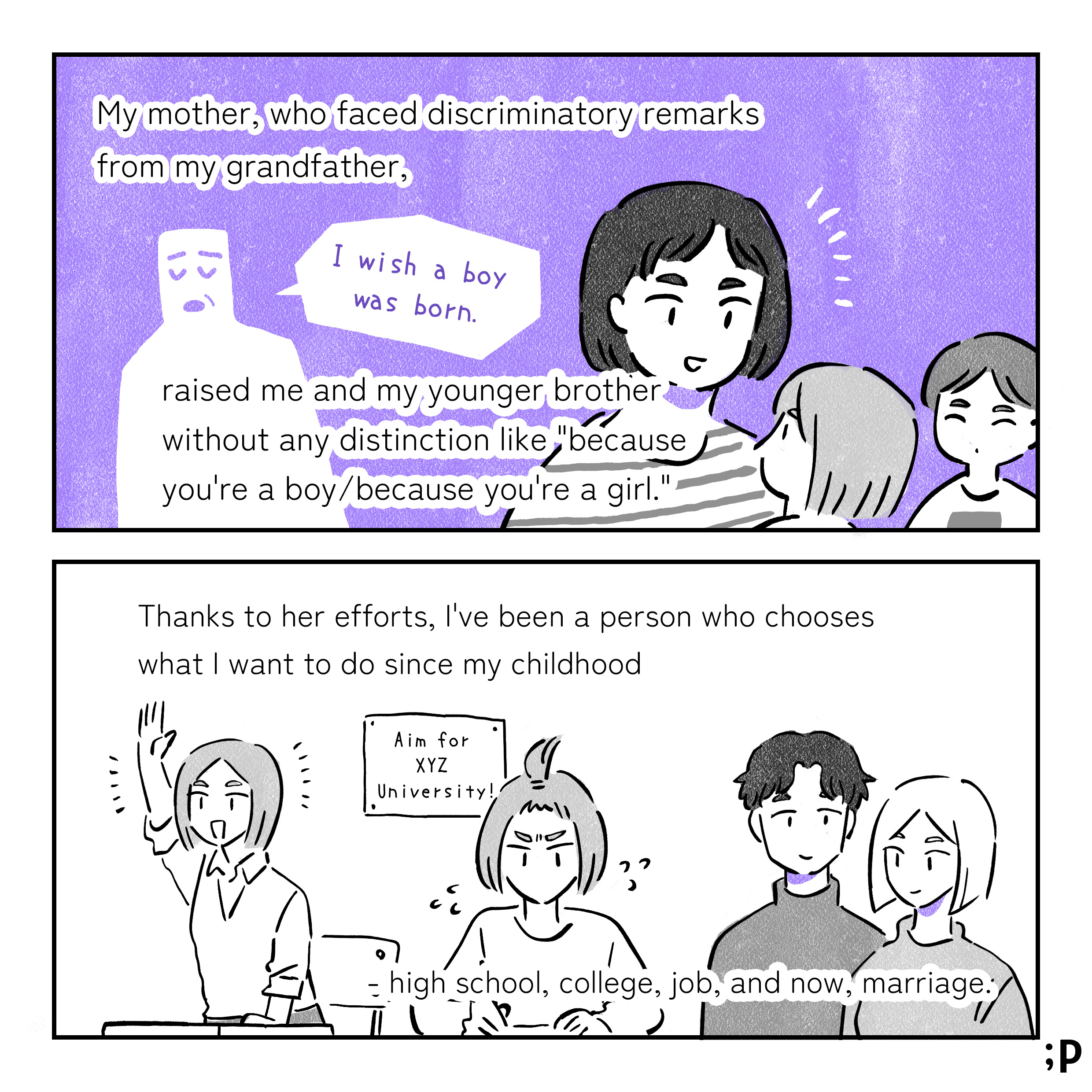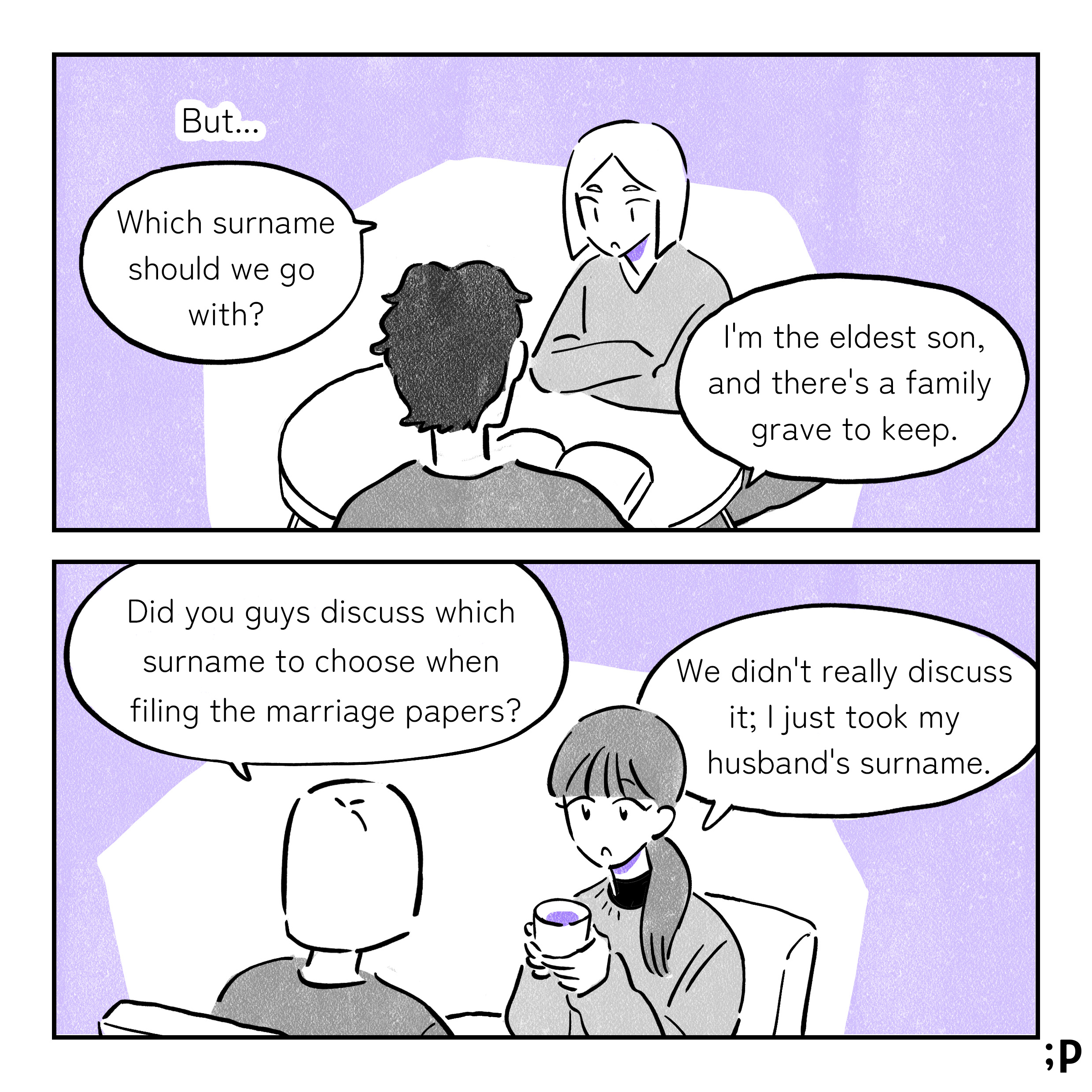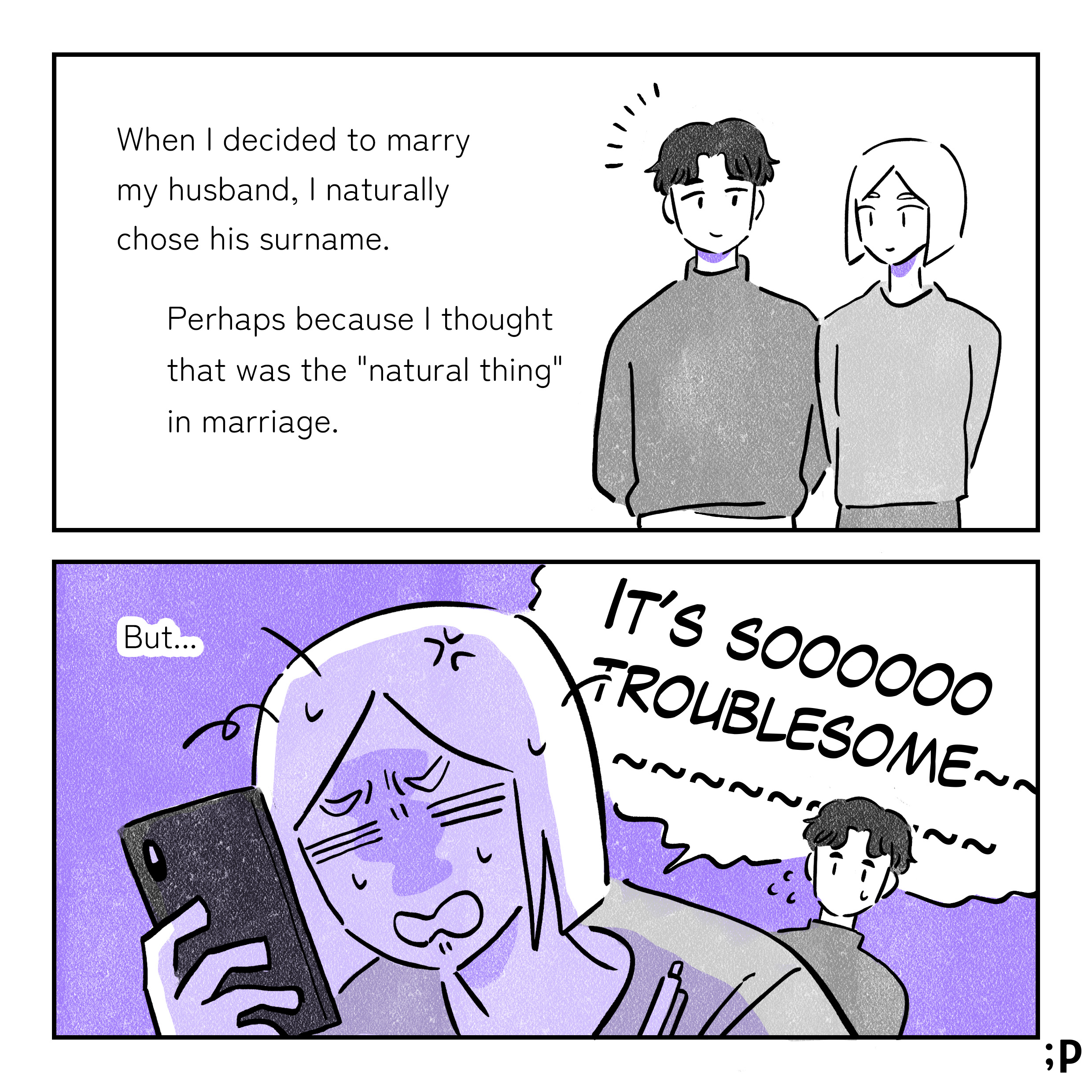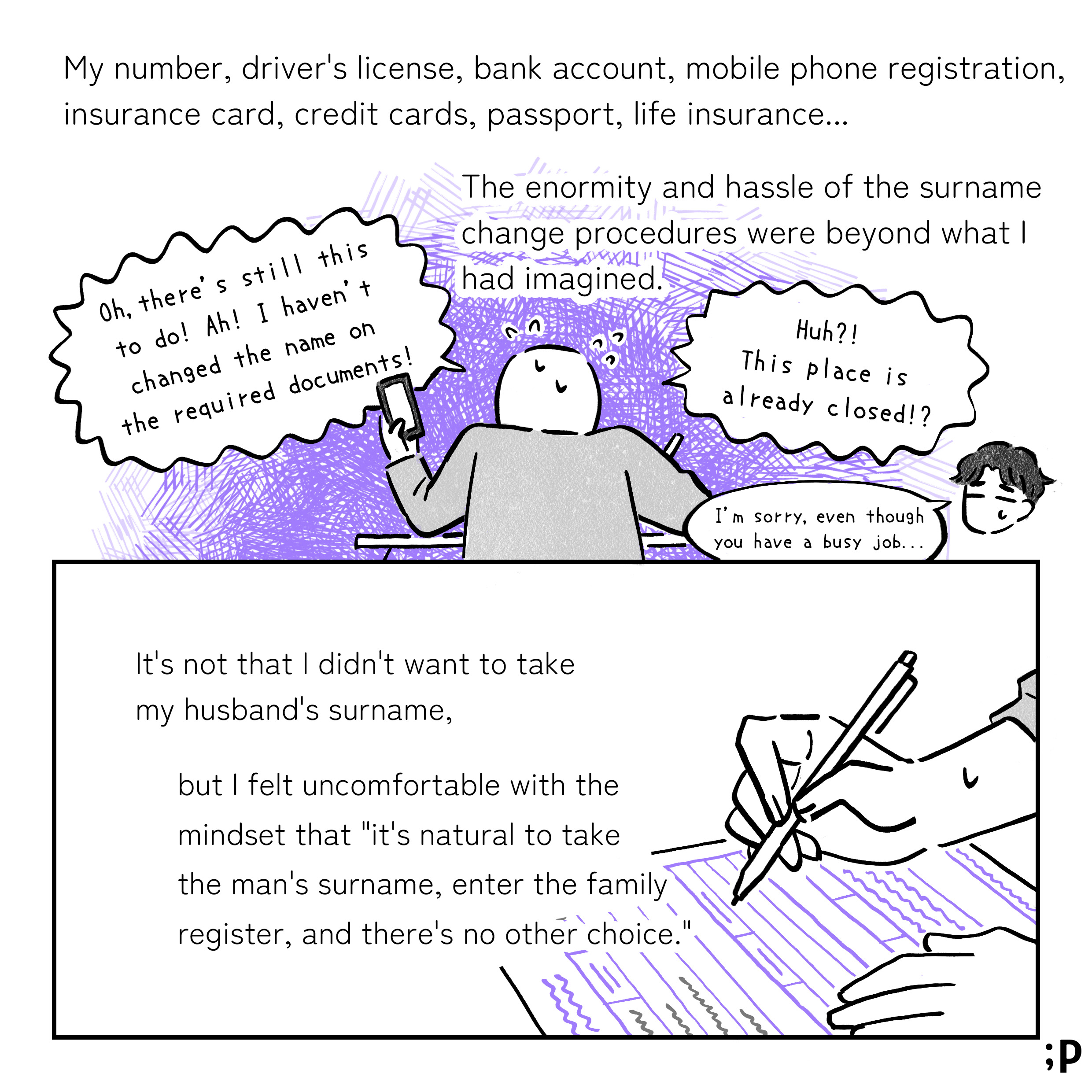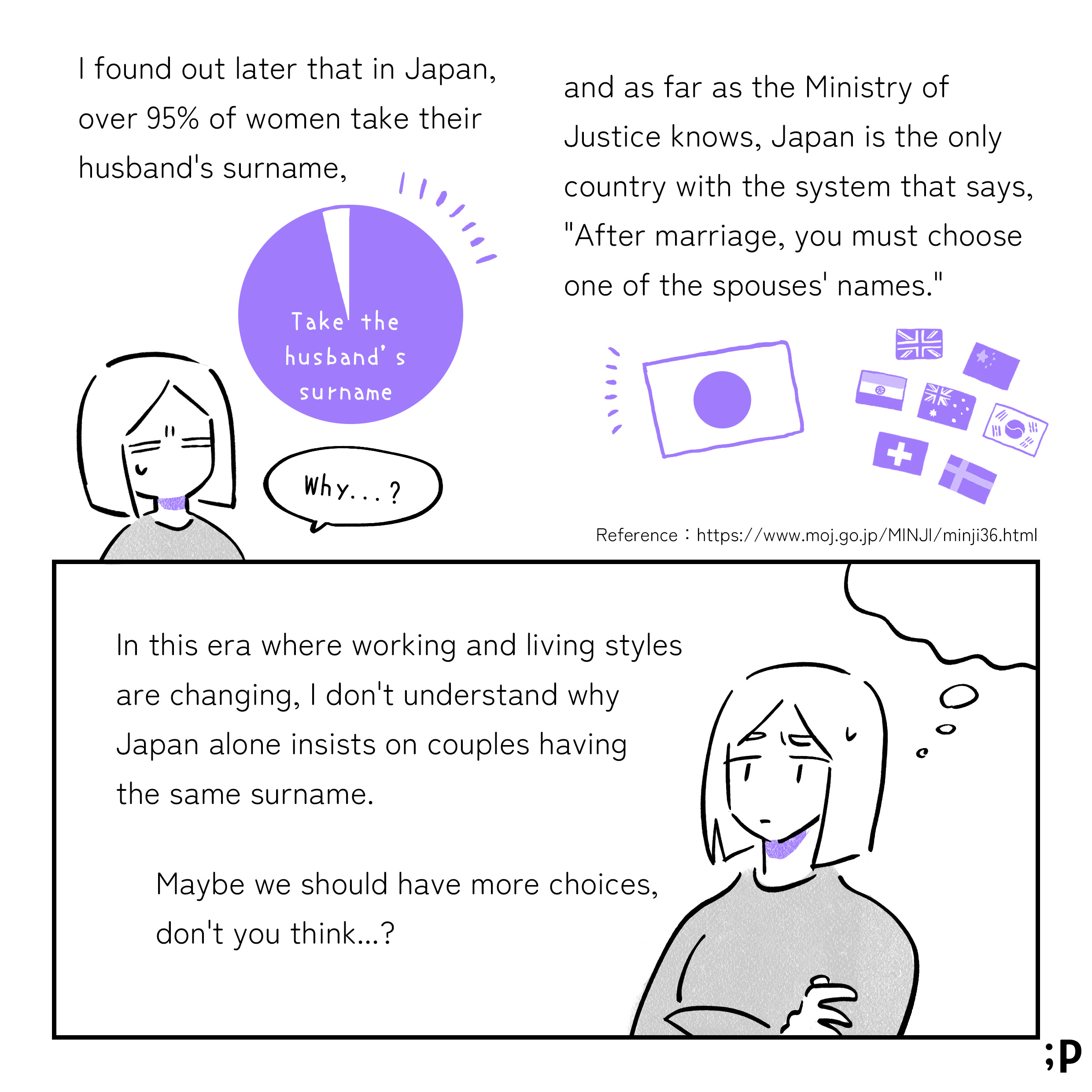【Manga】Thoughts on Becoming My Husband’s Surname: Reflecting on the Concept of Selective Spousal Surnames
In current Japan, choosing separate surnames for spouses is not allowed, so one of them must inevitably change their surname to their partner’s last name. Although there’s a rule that says, “You can choose either surname,” in reality, over 90% of women change their last names.
In Japan, there have been continuous calls for the option of selective spousal surnames, but it has not been realized yet.
Of course, there are many individuals who don’t mind changing their last names upon marriage. On the other hand, there are also numerous couples who wish to keep their original surnames after marriage. The reasons for not wanting to change last names vary from person to person.
This time, through the experience of a woman who changed her last name without feeling particularly uncomfortable when getting married, we will explore the remains of the family system related to marriage and the issues surrounding the option of separate spousal surnames.
Reasons for the Demand for Selective Spousal Surnames
While legally, the choice of which surname to take upon marriage is up to the couple, in reality, 96% of marrying women change their last names (Source: Ministry of Health, Labour and Welfare, 2016 statistics on marriage).
Certainly, there are many individuals who don’t resist changing their last names when getting married. On the other hand, there are people who desire separate surnames for various reasons. As illustrated in the manga, many might only feel the overwhelming burden of name change after experiencing it.
For instance, the complicated procedures and expenses associated with changing names on identification documents or bank accounts. In cases where there is a career history with the maiden name, changing the last name can make it difficult to link to that career. Even if using a common name is an option, it is still inconvenient and troublesome.
Moreover, many people consider their last name a part of their identity, and losing that name can be a significant source of mental distress.
Currently, due to existing laws, choosing separate surnames is not an option for married couples. Thus, in the act of marriage, one member of the couple must inevitably bear these sacrifices. This situation can be described as a “forced same-surname for married couples” system.
The fact that these various physical, mental, and economic burdens unfairly affect women in over 90% of couples is the current reality.
As a matter of fact, this forced same-surname practice is deeply connected to the discriminatory “family system” in Japanese society, reinforcing gender-biased attitudes even in the present day.
Marriage ≠ “Entering the Family Register”- A Common Misunderstanding!
You may have come across the term 入籍(nyuseki), meaning “entering the family register” used in expressions like the following.
– “We recently entered the same family register!”
– “Haven’t you entered your partner’s family register yet?”
Many people may associate submitting the marriage registration form in Japan with “entering the family register.”
However, this understanding is incorrect. According to current Japanese law, when a couple gets married, “both individuals create a new family register, separate from their original ones.”
The pre-war marriage system in Japan differed significantly from the current structure.
Before the war, marriages were more about uniting families than individuals. Under the “family system” (system of patriarchy), wives left their family register and entered the family register of their husbands (i.e., “entering the family register”). Naturally, the wife would change her last name to that of her husband.
However, there was an occasional practice of adopting a son-in-law known as “muko-yōshi.” This was related to the idea that the “family” is typically succeeded by male descendants.
If the wife’s family did not have a male inheritor, marrying off the daughter would mean the end of that family line. To address this, the wife’s family would adopt the husband as a son through the practice of “muko-yōshi” before the marriage. In this scenario, the husband entered the wife’s family, and as a result, the wife’s last name would become his.
In present-day Japan, these systems, such as “muko-yōshi” or the concept of entering a family register upon marriage, are rarely used.
While the term “entering the family register” may not often be used to mean “the wife entering the husband’s family register,” the general attitude of assuming that a woman changing her last name is natural has its roots in remains of this old family system.
The Assumed Norm: Women Changing Their Last Names
Wives changing their last names when getting married.
As depicted in the manga, the style where the wife changes her last name is considered the “normal” way of marriage even in present-day, is an undeniable fact. Actually over 90% of women are changing their last names upon marriage.
Because of this “normalcy,” choosing a “different kind of marriage” by keeping the wife’s last name might lead to questions like, “Why did you choose to do that?” They want to hear reasons like “the wife’s last name was uncommon” or “I didn’t like my own last name.” There’s also the common inquiry, “Did you become an adoptive son-in-law?”
Moreover, women who express a desire not to change their last names can be perceived as “selfish,” while men who consider changing their last names can be seen as “pathetic, giving in to their wives.”
Within the family system, the conventional idea was that the husband became the head of the household, and the wife follows. This aspect demonstrates how the family system still significantly influences our values today.
Towards Achieving “Selective” Spousal Surnames and Gender Equality
In Japan, there has been a long-standing movement advocating for selective spousal surnames. The current situation in Japan, where couples cannot choose separate surnames, has been repeatedly criticized by the United Nations as “discriminatory” and has received recommendations for correction (※1). Many individuals have been involved in this movement not only to eliminate personal inconveniences but also to change the deeply rooted “family system” and the gender discrimination based on it.
Certainly, there are those who do not resist changing their names. Couples who willingly choose to have the same surname or live in an equal relationship with the same surname also exist. However, if there are couples who desire separate surnames, shouldn’t that be recognized as a legitimate choice, too?
“Selective” spousal surnames mean that couples wishing for separate surnames have the option to do so. Couples desiring the same surname can continue to use the same surname as before.
According to a 2020 public opinion survey by Asahi Shimbun, 69% expressed support for selective spousal surnames, significantly surpassing the 24% who opposed it (※2).
Despite the longstanding desire for selective spousal surnames, why hasn’t it been realized yet?
As evident from the manga episode, the enforcement of the old family system’s remains, which force couples to have the same surname, continues to grow an atmosphere that values the “family” over individual choices. This contributes to keeping gender-discriminatory attitudes even in present-day society.
To eliminate gender-discriminatory attitudes and strive for a society where everyone can live regardless of gender, let’s reexamine the marital system and its various backgrounds, and update the system.
(※1) “Japan Only: UN Frequently Recommends Revisions to Mandatory Same-Surname Rule” – JIJI.COM, according to the Ministry of Justice, Japan is the only country in the world that legally mandates same surnames for married couples. Even countries that once mandated it have been revising their laws since the 1990s.
(※2) “69% In Favor of Choosing Separate Surnames for Married Couples, Over 80% of Women Under 50” – In a nationwide telephone poll conducted by Asahi Shimbun on the 25th and 26th , when asked about the option of separate surnames for married couples , 69% of respondents said they were in favor of the idea, far exceeding the 24% who were against it.
(Translation: Jennifer Martin)

